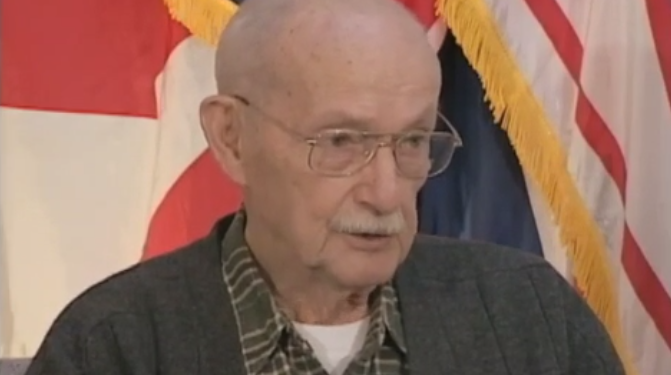Duty and Patriotism
Heroes Remember
Duty and Patriotism
Transcript
Description
Mr. Baggs speaks about duty and patriotism and the importance of military training.
Eric Thomson Baggs
Eric Thomson Baggs was born in St. John's, Newfoundland on March 3rd, 1918. He grew up in a fishing family and worked with his father at Royal Stores in St. John's filling fixtures and looking after wholesales. He joined the boy scouts when he was twelve. Mr. Baggs was accepted into the Royal Air Force in 1937 at seventeen but his father wouldn't let him go. He then tried for the Royal Navy but was refused because he was too young. When he was twenty-one he enlisted in the Army's Heavy Artillery Branch. He was trained in St. John's and then escorted to Liverpool in 1940. At first, Mr. Baggs was primarily on costal defense. Later his battalion became the 166th Field Artillery which became known as the best artillery regiment in all of the Allied Forces. When Mr. Baggs returned home to Newfoundland, he went on with life as usual, continuing work at his fathers store.
Meta Data
- Medium:
- Video
- Owner:
- Veterans Affairs Canada
- Duration:
- 02:00
- Person Interviewed:
- Eric Thomson Baggs
- War, Conflict or Mission:
- Second World War
- Location/Theatre:
- North America
- Branch:
- Army
- Units/Ship:
- 166 Field Artillery Regiment
- Rank:
- Sergeant
- Occupation:
- Heavy Artillery, Field Artillery
Related Videos
- Date modified:








